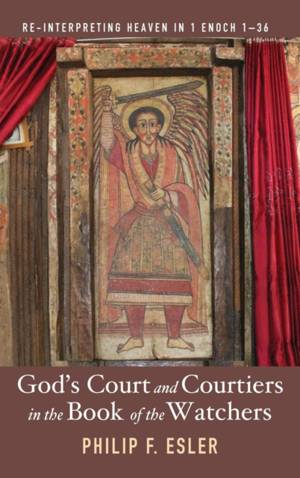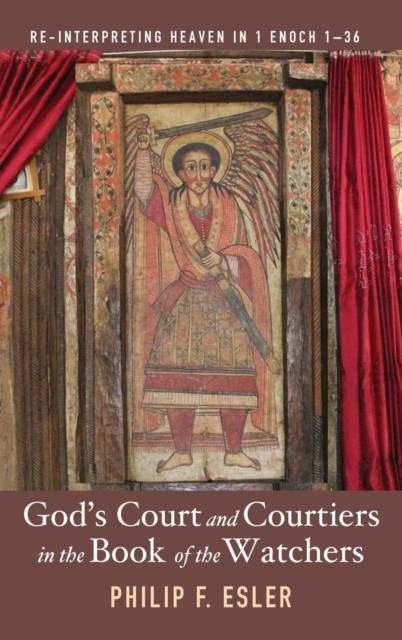
Bedankt voor het vertrouwen het afgelopen jaar! Om jou te bedanken bieden we GRATIS verzending (in België) aan op alles gedurende de hele maand januari.
- Afhalen na 1 uur in een winkel met voorraad
- In januari gratis thuislevering in België
- Ruim aanbod met 7 miljoen producten
Bedankt voor het vertrouwen het afgelopen jaar! Om jou te bedanken bieden we GRATIS verzending (in België) aan op alles gedurende de hele maand januari.
- Afhalen na 1 uur in een winkel met voorraad
- In januari gratis thuislevering in België
- Ruim aanbod met 7 miljoen producten
Zoeken
€ 72,45
+ 144 punten
Uitvoering
Omschrijving
First Enoch is an ancient Judean work that inaugurated the genre of apocalypse. Chapters 1-36 tell the story of the descent of angels called ""Watchers"" from heaven to earth to marry human women before the time of the flood, the chaos that ensued, and God's response. They also relate the journeying of the righteous scribe Enoch through the cosmos, guided by angels. Heaven, including the place and those who dwell there (God, the angels, and Enoch), plays a central role in the narrative. But how should heaven be understood? Existing scholarship, which presupposes ""Judaism"" as the appropriate framework, views the Enochic heaven as reflecting the temple in Jerusalem, with God's house replicating its architecture and the angels and Enoch functioning like priests. Yet recent research shows the Judeans constituted an ethnic group, and this view encourages a fresh examination of 1 Enoch 1-36. The actual model for heaven proves to be a king in his court surrounded by his courtiers. The major textual features are explicable in this perspective, whereas the temple-and-priests model is unconvincing. The author was a member of a nontemple, scribal group in Judea that possessed distinctive astronomical knowledge, promoted Enoch as its exemplar, and was involved in the wider sociopolitical world of their time.
Specificaties
Betrokkenen
- Auteur(s):
- Uitgeverij:
Inhoud
- Aantal bladzijden:
- 246
- Taal:
- Engels
Eigenschappen
- Productcode (EAN):
- 9781498285827
- Verschijningsdatum:
- 6/11/2017
- Uitvoering:
- Hardcover
- Formaat:
- Genaaid
- Afmetingen:
- 152 mm x 229 mm
- Gewicht:
- 535 g

Alleen bij Standaard Boekhandel
+ 144 punten op je klantenkaart van Standaard Boekhandel
Beoordelingen
We publiceren alleen reviews die voldoen aan de voorwaarden voor reviews. Bekijk onze voorwaarden voor reviews.









